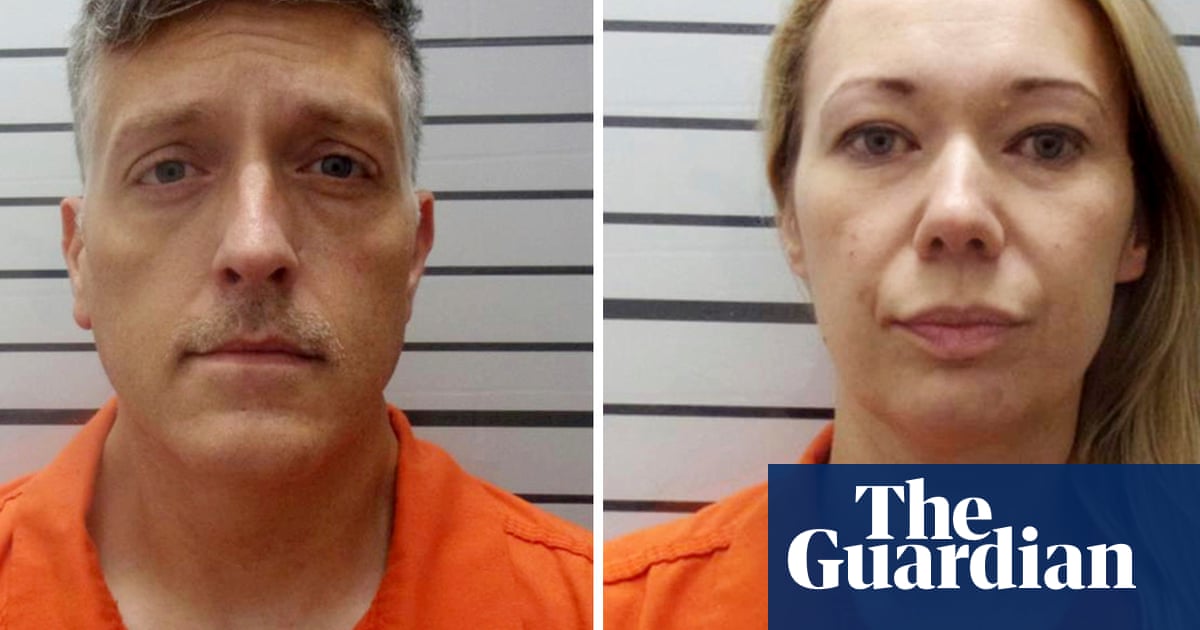Twisted Trust: Colorado Funeral Home Owner's Grim Deception Ends in 20-Year Sentence

"Twisted Trust: Colorado Funeral Home Owner's Grim Deception Ends in 20-Year Sentence"
In a chilling tale of betrayal and deception, Jon Hallford, the owner of Return to Nature funeral home in Colorado, was sentenced to 20 years in federal prison. Hallford's grim saga unfolded as he was found guilty of stashing nearly 190 corpses in a decaying building while defrauding grieving families by sending them fake ashes. This macabre enterprise not only shattered the trust of mourning families but also defrauded the federal government of nearly $900,000 in Covid-19 aid.
Hallford, who had pleaded guilty to conspiracy to commit wire fraud, faced the maximum penalty of 20 years—a sentence exceeding the prosecution's request by five years and doubling the defense's plea for leniency. In a moment of contrition before the court, Hallford confessed, "I opened Return to Nature to make a positive impact in people’s lives, then everything got completely out of control, especially me." His remorse was palpable as he added, "I am so deeply sorry for my actions. I still hate myself for what I’ve done."
The grotesque discovery in Penrose, a small town two hours south of Denver, unveiled the horrific truth to families who believed they had laid their loved ones to rest. Investigators in 2023 found bodies stacked like macabre puzzle pieces in a bug-infested building, a scene reminiscent of a horror film. The revelation that the ashes cherished by families were fraudulent undid many grieving processes, leaving a trail of emotional devastation.
Among the voices of anguish was young Colton Sperry, who stood before the judge to recount his heartache. His grandmother, a second mother to him, died in 2019, only to languish in the funeral home’s squalor for four years. "If I die too, I could meet my grandma in heaven and talk to her again," Sperry had told his parents, a statement that led to a mental health intervention.
The Hallfords' betrayal extended beyond emotional damage. Federal prosecutors detailed how they misappropriated pandemic aid, splurging on luxury vehicles, high-end fashion, and even cryptocurrency. Derrick Johnson, another victim, travelled 3,000 miles to testify, painting a vivid picture of his mother’s desecration. "I lie awake wondering: was she naked? Was she stacked on top of others like lumber?" Johnson lamented, his words piercing the courtroom's silence.
Laura H Suelau, Hallford's attorney, argued for a reduced sentence, emphasizing his admission of guilt and lack of excuses. Yet, the gravity of his actions weighed heavily, as Assistant US Attorney Tim Neff described the grotesque scene investigators encountered. Bodies piled high, fluids pooling on the floor, necessitating boards for agents to navigate the morbid landscape.
As Hallford awaits sentencing in a state case for 191 counts of corpse abuse and forgery, his co-owner Carie Hallford faces her own legal reckoning. She withdrew her guilty plea in March 2025 and is set to go to trial on federal charges in September, alongside state charges mirroring Jon Hallford’s.
This case, steeped in betrayal and greed, leaves a community grappling with the aftermath of a trust so profoundly violated. The echoes of this grim chapter in Colorado's history will linger, a stark reminder of the darkness that can lurk beneath the veneer of trust.
🔮 Fortellr Predicts
Confidence: 85%
The sentencing of Jon Hallford marks a significant turning point for the funeral industry, prompting immediate scrutiny and regulatory review. In the coming weeks, state and federal agencies are likely to increase oversight measures, especially concerning the handling of pandemic relief funds and the ethical management of funeral services. This case, focusing on the misuse of nearly $900,000 in federal aid, highlights potential systemic vulnerabilities in government funding programs, ushering in tighter controls and compliance checks. Local funeral homes in Colorado will face increased inspections and potentially higher insurance premiums due to heightened public and government distrust. As awareness grows, larger, more established funeral service providers may benefit from a temporary increase in clientele as families seek more reliable services. Additionally, the public outcry and media attention could lead to legislative proposals aimed at reforming the funeral industry's regulatory framework. Stakeholders, including consumer advocacy groups and industry associations, will likely push for reforms that emphasize transparency and consumer protection. However, small independent funeral homes could experience financial strain as they adjust to new regulations and scrutiny. This case may spark a nationwide debate on ethical standards in the industry, potentially transforming consumer expectations and business practices in funeral services.